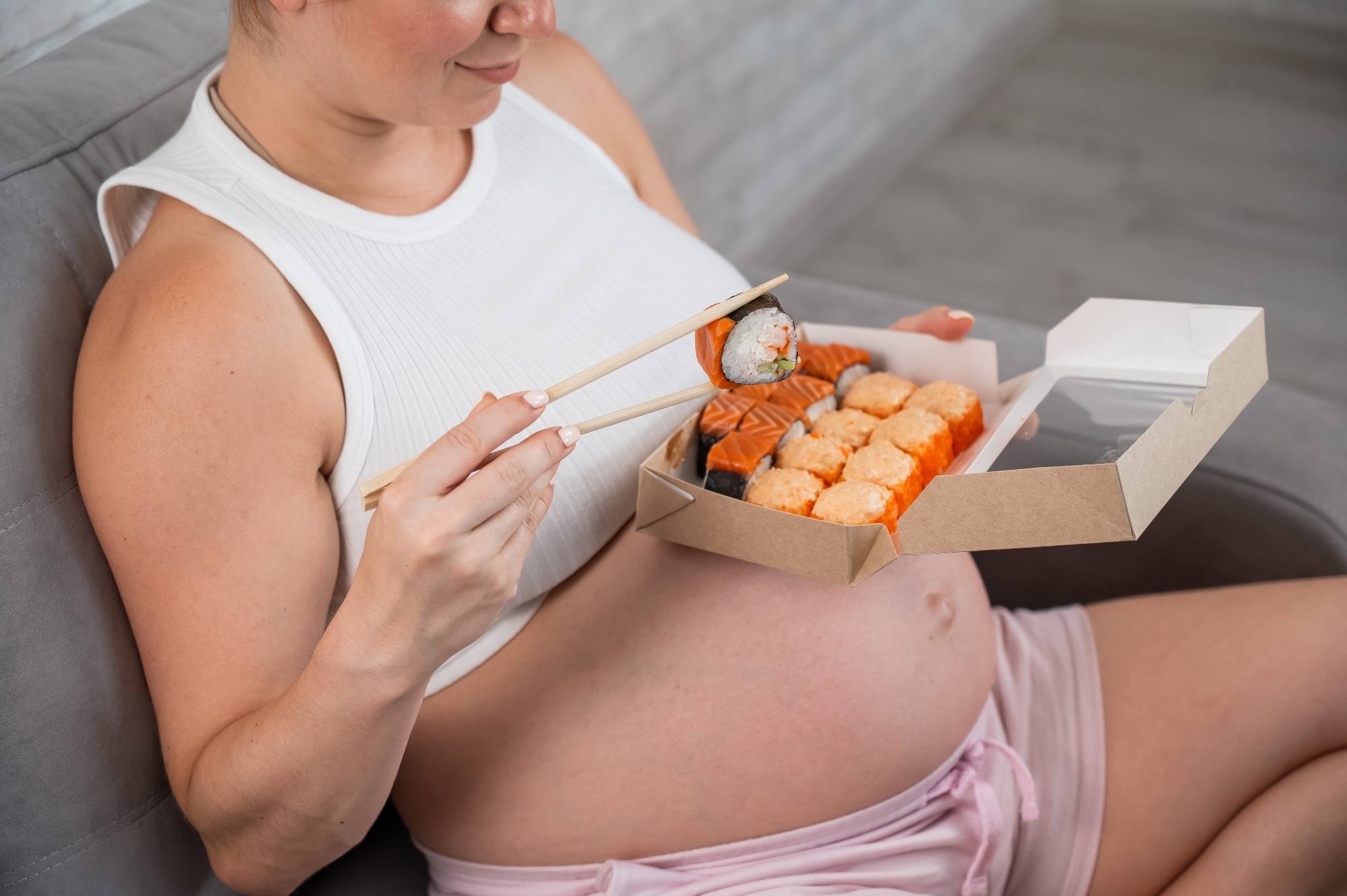Can a mother’s diet during early pregnancy shape their child’s decision-making years later? Research uncovers how specifically nuts and fish can have unexpected results on impulsiveness.
 Study: Maternal nut and fish consumption during pregnancy and child risky decision-making at 11 years old. Image credit: Reshetnikov_art/Shutterstock.com
Study: Maternal nut and fish consumption during pregnancy and child risky decision-making at 11 years old. Image credit: Reshetnikov_art/Shutterstock.com
A study published in European Child and Adolescent Psychiatry revealed that maternal consumption of nuts and fish during early pregnancy may be associated with neuropsychological behaviors in preadolescents.
Background
Dietary intake during pregnancy plays a crucial role in maintaining the health of the mother and child and regulating the child’s neurodevelopment. A suboptimal diet during pregnancy may affect children's cognitive development and behavioral performance.
Several studies have highlighted that long-chain polyunsaturated fatty acid intake during pregnancy is crucial for a child’s brain development. These fatty acids play a significant role in developing brain regions responsible for inhibition response and decision-making.
Long-chain polyunsaturated fatty acids are present in high amounts in nuts and fish. Consumption of nuts during pregnancy has been found to positively impact a child’s neuropsychological development, while the evidence for fish intake is less consistent.
Given the significant involvement of long-chain polyunsaturated fatty acids in brain development, the current study was designed to determine whether maternal consumption of nuts and fish during pregnancy can influence impulsive behaviors and risky decision-making in children and preadolescents.
The study
The study was conducted on 1386 healthy preadolescents and their mothers. The participants were part of the Spanish Environment and Childhood Project, a multicenter prospective birth cohort study recruiting pregnant women during the first trimester and offspring at birth from different regions of Spain.
A validated food frequency questionnaire assessed the maternal intake of fish and nuts during the first and third trimesters. Similarly, appropriate neuropsychological tests were conducted during the 11th-year visit to determine the offspring's impulsive and risky decision-making behaviors.
Study findings
The study analysis revealed that children whose mothers consumed the most nuts during the first trimester of pregnancy made significantly fewer risky decisions than children born to mothers with the lowest nut intake. However, maternal nut intake did not significantly impact children's impulsive behaviors.
Furthermore, the study found a significant association between moderate maternal fish consumption, specifically the second quintile of intake, during pregnancy and higher impulsive behaviors in children. This association was significant only for the second quintile, not for higher intakes, and no significant dose-response trend existed.
No association was observed between maternal fish consumption and risky decision-making in children. The study also did not find a significant association with dietary intake in the third trimester.
Study significance
The study reveals that the offspring of mothers in the higher tertile of nut consumption during early pregnancy were associated with a lower likelihood of risky decisions by offspring at 11. In contrast, moderate, but not higher, fish consumption during early pregnancy was associated with higher impulsive behaviors in offspring at the same age. However, the finding was not consistent across all intake levels.
The neuropsychological benefits of antenatal (during pregnancy) nut consumption could be attributed to its long-chain polyunsaturated fatty acid content, which contributes to developing brain regions (the prefrontal cortex) that control impulsive behaviors. Continuous development and maturation of the prefrontal cortex throughout adolescence are associated with a gradual reduction in impulsive behaviors.
Impulsive behaviors can potentially influence risky decision-making behaviors of children and adolescents, which can affect their psychological development and well-being. Given the association between impulsive behaviors and risky decision-making, the researchers suggest that the brain’s impulse control network might regulate antenatal nut intake-related reductions in risky decision-making behaviors.
The adverse neuropsychological effects of antenatal fish consumption observed in this study are inconsistent with existing evidence, mainly highlighting the neuropsychological and cognitive benefits of fish intake during pregnancy for children.
Fish, a rich source of long-chain polyunsaturated fatty acids, are expected to facilitate brain development in children and adolescents. However, some harmful substances in fish, such as pesticides, mercury, lead, and other heavy metals, are known to negatively affect neurocognitive functions in children, especially attention and impulsivity. The observed increase in impulsive behaviors in children may be associated with exposure to these harmful substances. This explanation remains speculative and was not directly tested in the study. The authors note that previous analyses from the same cohort did not find mercury to be a confounder.
It is important to emphasize that these findings are observational and show associations, not causality. Unmeasured or residual confounding cannot be ruled out. Future studies are needed to more conclusively understand whether the harmful effects of heavy metals present in fish can overshadow the neuropsychological benefits of long-chain polyunsaturated fatty acid intake.
Overall, the study findings provide a basis for increasing social awareness about the importance of diet and nutrition during pregnancy in improving children's mental health and psychological functions.
The study considered two behavioral domains; impulsivity, and decision-making, which are crucial because of their significant psychosocial consequences. The researchers suggest incorporating these behavioral domains in future neuro-epidemiological studies to promote healthy neurodevelopment.
The study assessed neuropsychological consequences in children up to 11 years of age. At this age, the prefrontal cortex continues to develop and mature. Therefore, studies involving children with fully matured prefrontal cortex are needed to determine the optimal impact of antenatal dietary exposure on neuropsychological consequences.
The authors note that the dietary data relied on self-reported food frequency questionnaires, which may introduce measurement errors. Notably, participants with complete follow-up data had more advantageous backgrounds. The study was conducted on Spanish mothers and children, which restricts the generalizability of its findings to other populations.
Download your PDF copy now!